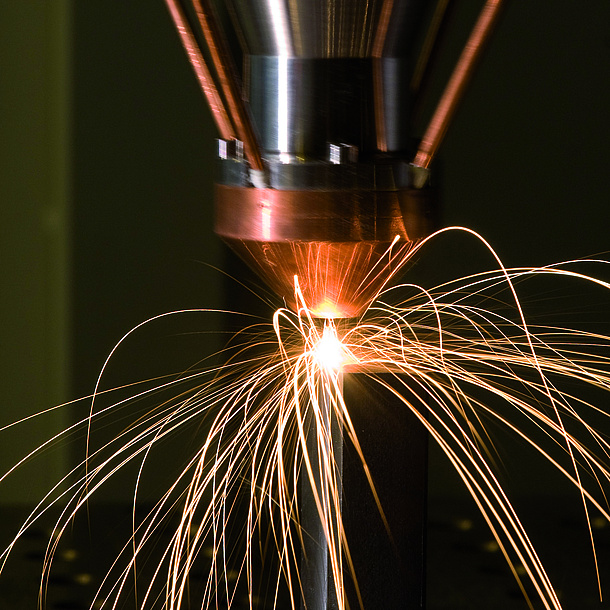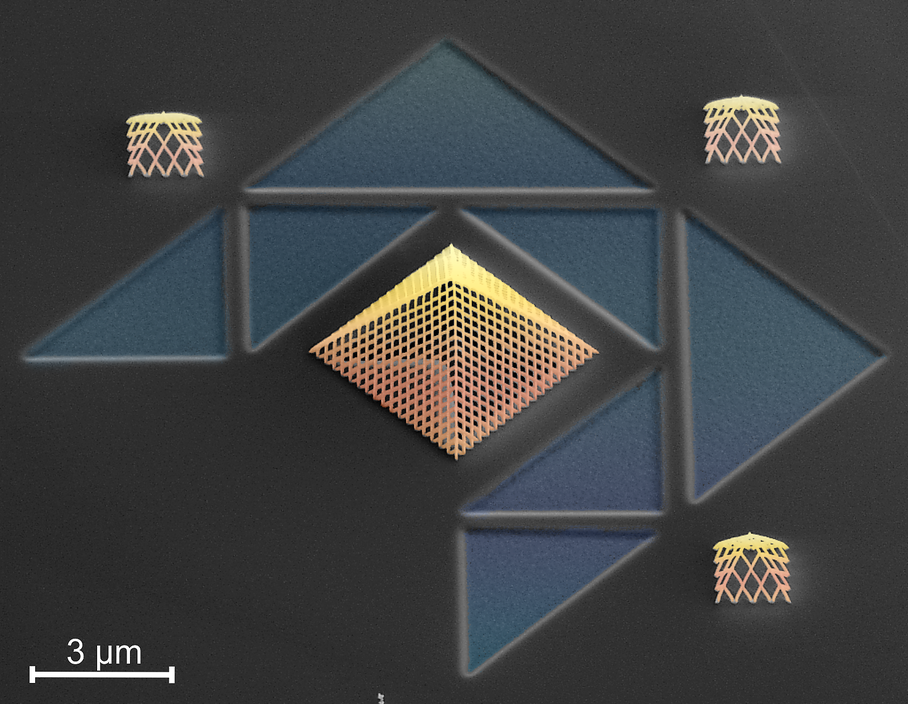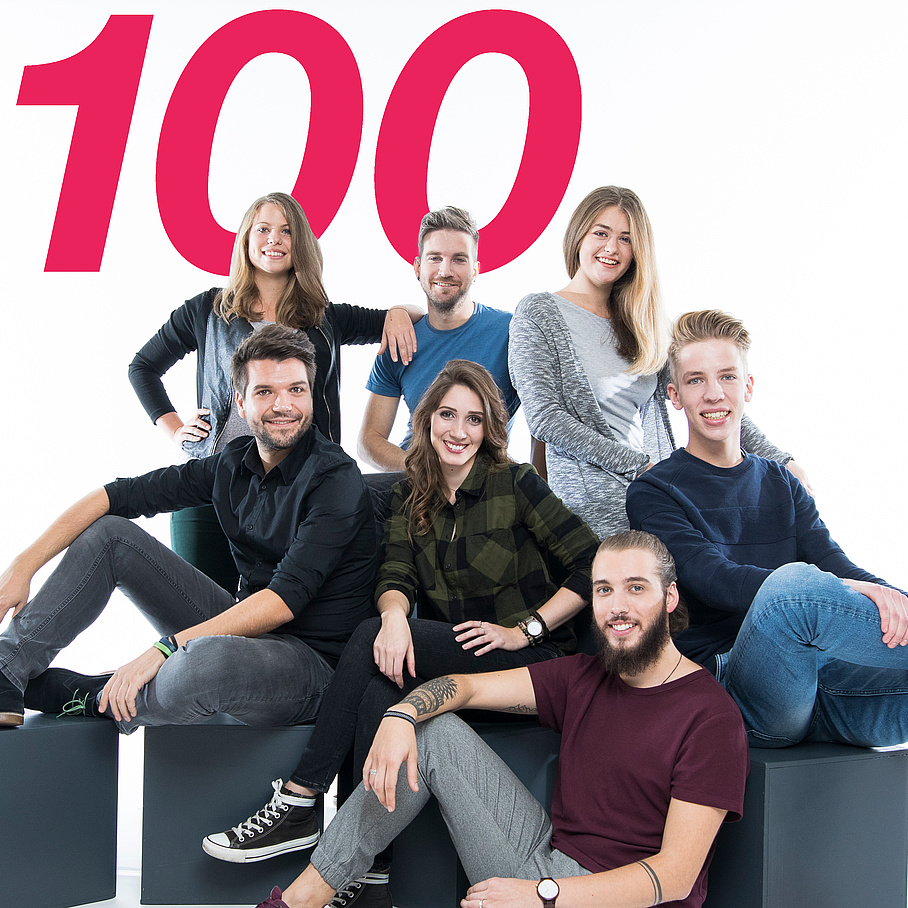
Quick Facts
- Duration of study: 4 semesters
- ECTS credit points: 120
- Academic degree:
Diplom-Ingenieurin
orDiplom-Ingenieur
(Dipl.Ing. or DI), equivalent to the Master of Science (MSc) - Language of instruction: English
The Master's Programme
In the master’s degree programme Advanced Materials Science
, you will deepen and broaden your knowledge, which you have obtained in a bachelor’s degree in a field of the natural sciences or technology, such as Physics, Chemistry, Mechanical Engineering, Chemical and Process Engineering, Environmental Systems Sciences, or Electrical Engineering.
You acquire basic physical and chemical knowledge and engineering skills on the following topics, among others:
- structural materials for vehicle construction and aviation
- novel functional materials for use as sensors or actuators
Energy Materials
that be used to store or produce energy or increase the efficiency of processes- bio-based and biocompatible materials
Interdisciplinary cooperation among different faculties is strongly supported in the programme. You receive insight in the following areas, among others:
- research laboratories in the areas of battery materials and semiconductor technology, paper and pulp, high-performance alloys,
- the research area
Additive Manufacturing
with 3D printing in the area of metalworking, or - the research area of micro- and nanostructuring at the Austrian Centre for Electron Microscopy and Nanoanalysis
The course content also supports the Sustainable Development Goals (SDG) formulated by the UN in the context of sustainability.
Focus Areas
You will learn about the production, processing, characterisation, modelling and application of materials and substances in an interdisciplinary way. Furthermore, you will acquire the ability to apply complex scientific methods used in the fields of physics, chemistry and materials science to materials. After completing your studies, you are able to specifically select materials and substances, develop ideas for new materials and optimise or predict their properties.
You deepen your knowledge in one of the following focus areas:
- Metallic and Ceramic Materials: You learn about the microstructure and properties of these materials, as well as how to apply them as structural and functional materials.
- Semiconductor Process Engineering and Nanotechnology: You will delve into areas of semiconductor physics and nanophysics, learning techniques such as lithography and the steps taken to manufacture semiconductor devices and micromechanical components.
- Biobased materials: You will learn the fundamentals of biochemistry and biophysics and how to use biocompatible materials in medical applications.
The programme is characterised by extensive laboratory exercises which offer good supervision in each subject. You also have the opportunity to conduct material measurements, analyses and synthesis processes.

Miniaturized replica of the Louvre in Paris. For fabrication, a finely focused electron beam was used, which breaks up surface-adsorbed molecules in order to immobilize them. Due to the highly precise position control of the electron beam, such 3D constructs with individual structure sizes down to less than 20 nm can be manufactured additively in a single step.
Source: FELMI-ZFE (Austrian Centre for Electron Microscopy & Nanoanalysis)
Collaborations and Networks
You learn how to work together in project teams to apply interdisciplinary methods to solve problems. In doing so, you also have the opportunity to cooperate with representatives of international research institutions as well as renowned, globally operating companies. This also enables the students to conduct practical company internships and master's theses.
During the course of the programme, lectures and talks by external lecturers from industry and science are regularly offered, providing insights into current research areas.
Admission
The prerequisite for admission is a completed bachelor’s degree in a relevant subject (see curriculum).
Additionally, you need to provide evidence of competence in the English language.
1. Admission Procedure
Admission without admission procedure
The following categories of applicants are eligible for the master’s programme without an admissions procedure:
Graduates of the following bachelor’s programmes at TU Graz or the University of Graz:
- Chemistry
- Physics
- Mechanical Engineering
- Mechanical Engineering and Business Economics
- Chemical and Process Engineering
- Environmental Systems Sciences / Natural Sciences-Technology
- Electrical Engineering
- Biomedical Engineering
- Digital Engineering
Graduates of all other degree programmes offered at the TU Graz or, in the case of a NAWI Graz programme, the University of Graz can apply for admission at the Registrar's Office without an admission procedure.
Admission with admission procedure
Graduates of a previous study programme not mentioned above undergo an admission procedure.
Registration for the academic year 2026/27: 15 October to 15 December 2025
You can complete the admission procedure before the end of your bachelor’s studies.
Please do not send any documents by post!
2. Admission
- Admission and deadlines for international students
- Admission and deadlines for Austrian students who are registering to study at TU Graz for the first time
If you have already been admitted to a degree programme at TU Graz, or have studied at TU Graz before, please come to the Registrar's Office in person to complete your admission during the admission period.
Fragen zur Zulassung?
Contact study@tugraz.at
Career Prospects

Throughout the entire programme, I was encouraged to develop my personal strengths. Completing tasks in small groups definitely helped me learn how to work as a member of a team. The many oral exams gave me the confidence to present my arguments and to answer questions spontaneously. These are both valuable skills that, in addition to my professional qualifications, made it much easier for me to begin my career.
The master's degree programme in Advanced Materials Science opens up a wide range of career options; I chose to enter the semiconductor industry. Currently, I am employed by a well-known semiconductor company and working on my dissertation on a topic related to industry, and specifically on the development of a manufacturing process for novel chip packages.
Professional Fields
As a materials scientist, you can perform a wide range of complex tasks in industry, research and public institutions. You are nationally and internationally active in, for example:
- industrial research and development, e.g. the materials industry, chemical industry, semiconductor industry;
- high-tech areas such as sustainable technologies, process innovation and information technology; and
- research and teaching at universities and research institutes.
Acquire AI skills: AIE Extension Programme
Increase your career prospects with the Artificial Intelligence Engineering (AIE) extension programme and learn essential skills in AI development and application during or after completing your Master's degree.



